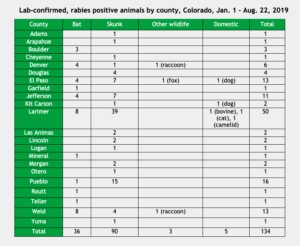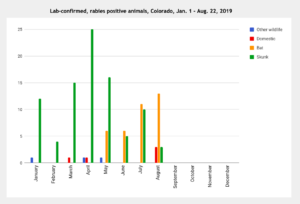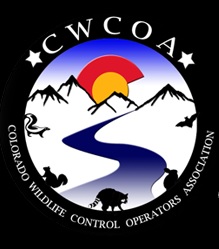Rabies in Colorado 2019


Rabies is regularly found among wildlife (especially skunks and bats) in Colorado, even in urban areas. We monitor wildlife and test animals showing signs of rabies to determine how far the disease has spread among skunks.
Rabies is a serious threat to humans and animals. Our lab-based monitoring helps us prevent cases in people and control the spread of rabies in animals, decide what treatment to use when humans have been exposed, figure out how to manage animals that might have been exposed, and add to the science of the disease.
So far in 2019, 134 animals from Colorado tested positive for rabies. Of those, 102 rabid animals are known or strongly suspected of exposing 207 domestic pets, 57 livestock animals, and 43 people. These numbers may change as additional information is acquired.




